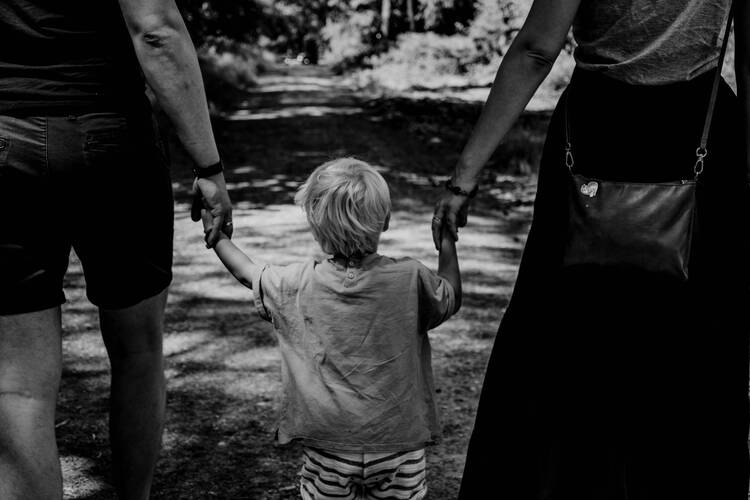A Reflection for Saturday of the Second Week of Easter
You may find today’s readings here.
When they had rowed about three or four miles,
they saw Jesus walking on the sea and coming near the boat,
and they began to be afraid.
But he said to them, “It is I. Do not be afraid.”
They wanted to take him into the boat,
but the boat immediately arrived at the shore
to which they were heading.(Jn 6:19-21)
When you are a parent, “Be not afraid” makes a good utility mantra. In this oh-sweet life, there are so many worries to attend to, so many dangers lurking just ahead of us, so many calamities waiting to befall the people we love—from broken bones to broken hearts to broken hopes.
“Be not afraid” has been my go-to mutter on many occasions even as (perhaps, especially as) my kids have grown up and begun departing the household on their own adventures in the great big beautiful, terrifying world. A lot of the time they are on their own, out of my sight. Anything could be happening to them; what could be happening to them?
Over and over again in Hebrew and Christian scripture, the same phrase or a close variant repeats itself: “Do not be afraid,” “Be not afraid.” This is not to say, “be careless,” or “be carefree.” We all know that each day comes preloaded with things to worry about and that life gives us plenty of legitimate fears.
But when you put your trust in the all-powerful and all-knowing and all-merciful God, who knew you before you were born, who has counted every hair on your head, it becomes possible to live not without fear, but perhaps not in thrall to fear: What will happen to my family? What will happen to my country? What will happen to my church?
We can be petrified and frozen with anxiety or we can liberate ourselves from it. We can accept the troubles of the day as sufficient for that day and not pile on woes and anxieties into a shaky edifice in our imagination. There is a divine justice, a divine mercy and a divine love that frees us all from fear.
In today’s Gospel, the apostles are understandably terrified by what they witness—a figure walking across the water towards them. Is it a man? Is it a ghost? What could be approaching them?
It is a person with the power to quiet both the stormy sea and their anxious hearts, someone able to bring them safely home in a second, a passage so swift and sure it is beyond their perception but no less real for that.








